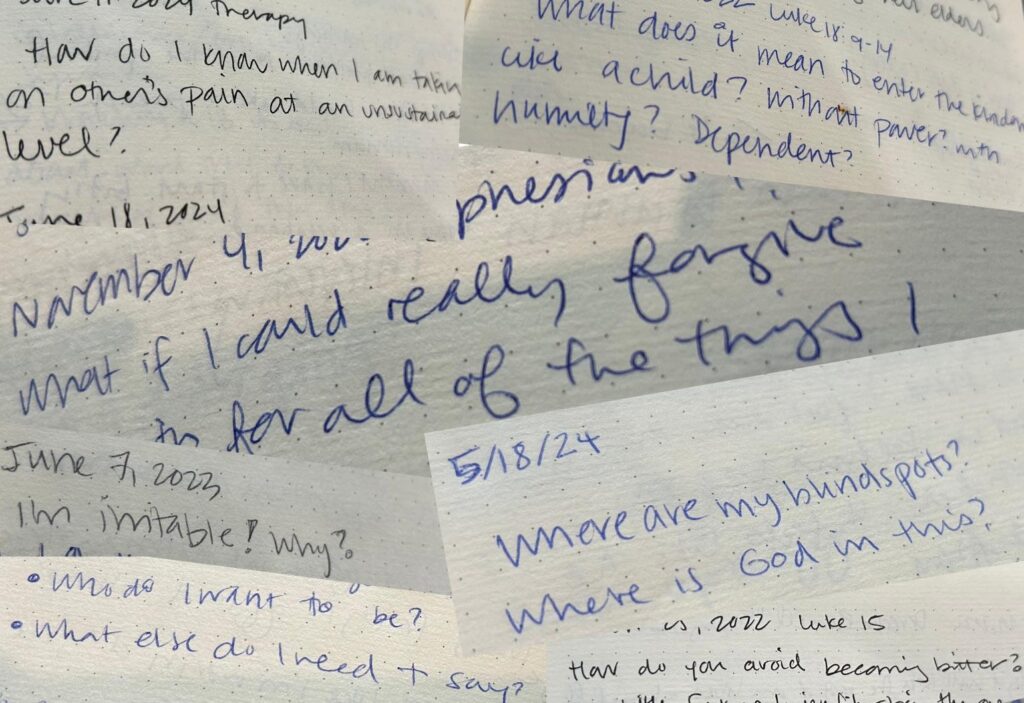I teach a class for young adults who want to go to college. Some of them have earned their GEDs at our school, while others graduated from high school but didn’t make the leap straight to college because of the pandemic, or money, or mental health challenges, or not feeling academically prepared. During my class, students address these obstacles and learn skills they’ll need to be successful at college. This year, the last assignment I gave prior to the final exam was to brainstorm, and then answer, their own test questions. The goal is for students to review all that they’ve learned through the eyes of the teacher: What are the most important things to know?
I was thinking about good questions after reading notes from Working Preacher on the gospel for this week.* The crowd was so delighted by the miraculous meal that Jesus had provided that they can’t quite think about anything other than whether he’ll do it again, or whether perhaps he’ll do something even more wondrous. But this isn’t what Jesus wants to talk about, and the resulting conversation — if you can even call it that — is almost absurd. It’s as if Jesus is answering totally different questions than the ones the crowd is asking. The people are confused and, by the end of the interaction, frustrated with Jesus and each other.
--Erica Lloyd, Seekers Church
For more...
The truth is, you can bend Scripture to say just about anything you want it to say. You can bend it until it breaks. For those who count the Bible as sacred, interpretation is not a matter of whether to pick and choose, but how to pick and choose. We’re all selective. We all wrestle with how to interpret and apply the Bible to our lives. We all go to the text looking for something, and we all have a tendency to find it. So the question we have to ask ourselves is this: are we reading with the prejudice of love, with Christ as our model, or are we reading with the prejudices of judgment and power, self-interest and greed? Are we seeking to enslave or liberate, burden or set free?
This is why there are times when the most instructive question to bring to the text is not, What does this say? but, What am I looking for? I suspect Jesus knew this when he said, “Ask and it will be given to you; seek and you will find; knock and the door will be opened to you” (Matthew 7:7).
-From Inspired: Slaying Giants, Walking on Water, and Loving the Bible Again by Rachel Held Evans






